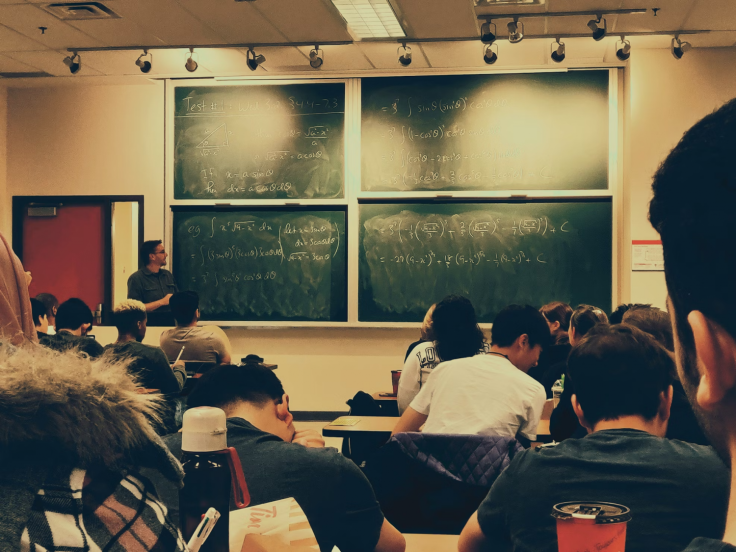MTA Report Reveals Massachusetts Public Higher Education Faculty Salaries Lagging Behind National Standards
ByIn the landscape of higher education, faculty salaries serve as a cornerstone for attracting and retaining top academic talent, shaping the quality of education, and influencing institutional competitiveness. However, a recent report commissioned by the Massachusetts Teachers Association (MTA) has shed light on concerning disparities in faculty compensation within the state's public higher education system.

Discrepancies Exposed: MTA Report Highlights Wage Gap
The MTA report, conducted by ASA Research, has unveiled a troubling reality: Massachusetts faculty salaries lag significantly behind those of comparable states when adjusted for the cost of living. The data reveals a stark wage gap, particularly pronounced within community colleges. Despite Massachusetts' status as one of the states with the highest cost of residence, faculty salaries in community colleges fall notably short compared to states like California and Michigan, with an approximate difference of $40,000. This revelation underscores a critical need for urgent intervention to rectify these disparities and ensure fair compensation for faculty members across the state.
Max Page, President of the MTA, expressed deep concern over the findings, emphasizing the detrimental impact of wage disparities on faculty recruitment efforts and the overall quality of education provided to students. The widening wage gap poses significant challenges for Massachusetts' higher education sector, hindering its ability to attract and retain highly qualified faculty members, particularly in fields deemed critical for societal advancement.
READ ALSO : California Approves Revised Teaching Standards With Emphasis On Family Engagement, Social-Emotional Learning
Advocating for Change: Legislative Efforts and Policy Advocacy
In response to the report's findings, the MTA has intensified its advocacy efforts, pushing for legislative action to address faculty salary inequities and enhance accessibility to public higher education. Proposed legislation (H 1260 / S 816) seeks to bolster campus investments, including substantial enhancements to faculty salaries, and alleviate the burden of student debt. While these legislative initiatives hold promise, they are still pending review before the Joint Committee On Higher Education, highlighting the pressing need for concerted action to secure investments in public higher education and bridge the wage gap with other states.
Furthermore, the MTA has called upon the Board of Higher Education to advocate for public higher education investments, thus narrowing the wage disparities and ensuring equitable compensation for faculty members. Legislative action, coupled with strategic policy advocacy, is crucial to safeguarding talent retention and upholding the accessibility and quality of public higher education in Massachusetts.
Confronting Challenges: Implications for Student Outcomes and Institutional Competitiveness
Beyond the realm of faculty recruitment and retention, the wage gap in faculty salaries carries broader implications for student outcomes and institutional competitiveness. The inability to attract and retain qualified faculty members undermines the quality of education offered to students, thus hindering efforts to meet workforce demands in key sectors such as teaching, nursing, and criminal justice. Despite initiatives aimed at enhancing college affordability, such as expanding financial aid and offering free community college, the persistent wage gap remains a significant obstacle.
To address these multifaceted challenges, stakeholders must prioritize equitable compensation for faculty members, safeguard talent retention, and uphold the accessibility and excellence of public higher education in Massachusetts. Collaborative efforts, encompassing legislative action, institutional reforms, and advocacy initiatives, are imperative to bridge the wage gap and ensure fair compensation for faculty members. By investing in faculty salaries and prioritizing educational quality, Massachusetts can fortify its position as a leader in higher education and cultivate a vibrant academic ecosystem.
As discussions continue, stakeholders must unite to implement sustainable solutions that promote fairness, accessibility, and excellence in public higher education. Through concerted action and strategic advocacy, Massachusetts can embark on a transformative journey toward a more equitable and vibrant higher education landscape, ensuring faculty members are valued and adequately compensated for their contributions to student success and academic excellence.
RELATED ARTICLE : Arizona GOP Bill Threatens Faculty Governance In State Universities
© 2025 University Herald, All rights reserved. Do not reproduce without permission.








